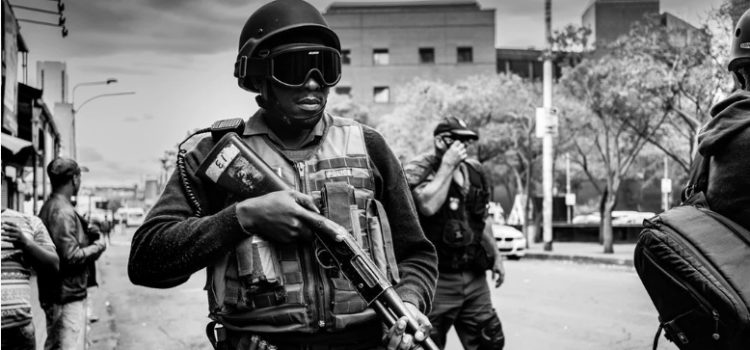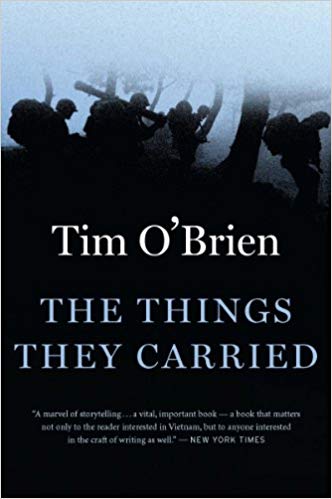

This article is an excerpt from the Shortform summary of "The Things They Carried" by Tim O'Brien. Shortform has the world's best summaries of books you should be reading.
Like this article? Sign up for a free trial here .
Who is Mitchell Sanders in The Things They Carried? What are the defining moments for his character?
Mitchell Sanders is a soldier in Alpha Company, a unit of the U.S. Army in the Vietnam War, in The Things They Carried. Sanders tells the book’s narrator stories that prompt the narrator to reflect on the fine line between truth and fiction.
We’ll cover the most important scenes involving Mitchell Sanders in The Things They Carried.
Mitchell Sanders in The Things They Carried
The primary role of Mitchell Sanders in The Things They Carried is that of storyteller. He tells a few stories that represent the themes of The Things They Carried.
Mitchell Sanders’s Story: Music in the Mountains
O’Brien remembers another story he heard, this one from Mitchell Sanders, about a six-man patrol that was sent up into the mountains to listen for enemy movement.
(Shortform note: It’s significant that O’Brien hears these stories secondhand, rather than experiencing them himself. It speaks to the unreliability of narrative and the blending of fact and fiction that defines so much of The Things They Carried. These stories may not be true in an empirical sense—they’re often fantastical and surreal—but they accurately illustrate the emotional turbulence and mind-bending experience of actually being in Vietnam, so in that sense they are true and worthy of retelling.)
In The Things They Carried, Mitchell Sanders describes the fear and isolation the men experienced at this remote listening post in the mountains, surrounded by dark. The experience blurred the line between reality and fantasy for the patrol, as the men began to see and hear things in the darkness that they logically knew couldn’t and shouldn’t be out there. At first, they heard strange and ethereal Vietnamese music playing, seeming to emanate from the jungle itself. Some of them were driven to near-madness by the music they heard, but were unable to do anything to shut it out.
Eventually, Mitchell Sanders in The Things They Carried says they began hearing what sounded like a cocktail party out in the jungle, complete with glasses clinking, conversation, and orchestral music. They called in an air strike to drown out the haunting and nonstop noise. The Air Force napalmed the mountain—it was only then that the music finally stopped. The men were reprimanded for calling in an air strike against what appeared to have been an uninhabited mountain, but to them, the noise was all too real.
O’Brien rates this story of Mitchell Sanders in The Things They Carried as true, even if it can’t be believed and may never have “happened.” It is true because it reveals to the listener the fear, isolation, and paranoia that defined the Vietnam War experience for so many young men. O’Brien can relate to the story of a collective psychotic break on the part of this patrol unit, because he knows all too well what being alone in the dark jungle does to the human mind.
Mitchel Sanders’s Blame
O’Brien feels that he was responsible for soldier Kiowa’s death. Right before the attack, O’Brien and Kiowa had been talking together in the field, sharing stories from back home. The light from the flashlight gave away the company’s position to the enemy, causing the firefight which led to Kiowa’s death.
The next day, the men begin the mournful search for Kiowa’s body in the sewage field. Their boots sink into the filth as they wade through, trying to cover as much ground as they can.
Later, they find Kiowa’s submerged body, which requires several men to dig out from the muck. Finding the body causes the men to reflect on the random nature of life and death in Vietnam. After finding the pack, Mitchell Sanders in The Things They Carried becomes enraged at what he perceives as Lieutenant Cross’ incompetent decision to encamp the company in a sewage field, arguing that he ought to have exercised better field discretion and found a safer place for his men to spend the night.
Cross, meanwhile, is stricken with guilt at losing another man under his command. He knows that he ignored the warnings from the villagers (and from Mitchell Sanders) to avoid that field. It is his mistake, he believes, that killed Kiowa.
Cross observes to himself that a death always leads to an assessment of responsibility, a search for who or what is to blame. In the field, the larger sociopolitical or theological context doesn’t matter: a single stupid decision (like Cross camping in the sewage field or O’Brien switching on his flashlight) could lead to a man getting killed. Kiowa’s death is simultaneously no one’s fault and everyone’s.
———End of Preview———

Like what you just read? Read the rest of the world's best summary of "The Things They Carried" at Shortform . Learn the book's critical concepts in 20 minutes or less .
Here's what you'll find in our full The Things They Carried summary :
- What the Vietnam War was like for soldiers on the ground
- How Vietnam soldiers dealth with the psychological stress of death around them
- How fictional stories can be truer than the truth






